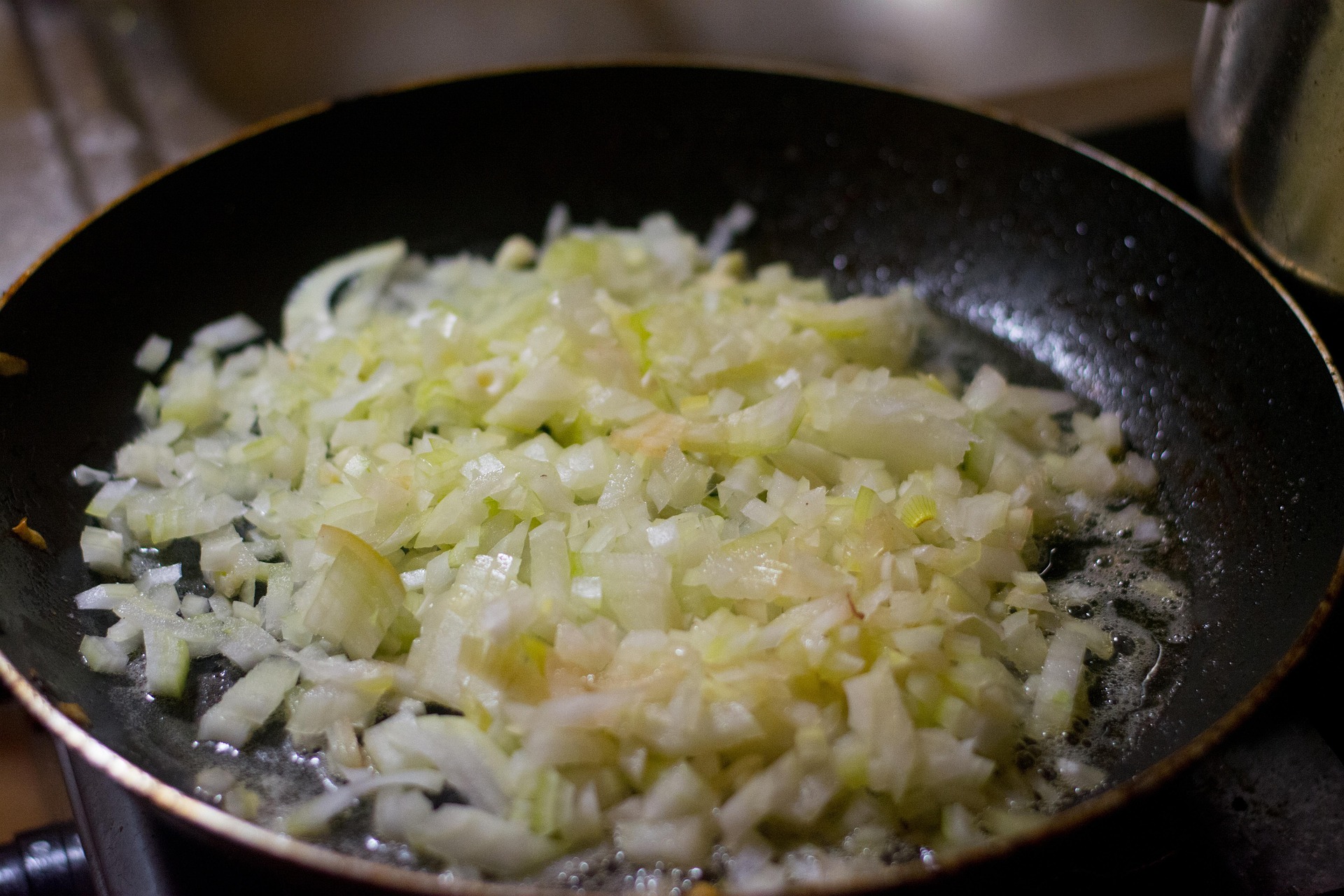Cooking skills for students: top tips and easy meals to get you started
Ah, the student kitchen: a place synonymous with meal mishaps and hilariously overcooked dishes. Our recent survey of essential skills for university found that most students are ill-equipped for the world of cooking after moving away from home.
Between study, socialising, and self-care, cooking is unlikely to be high up on the priority list for students. But, that doesn’t mean you have to limit yourself to a diet of takeaways and frozen food – with a bit of practice, cooking can be very rewarding.
In this guide, we’ll cover all of the essential cooking skills for students – from grocery shopping on a budget, to batch cooking speedy meals – so that you can level up your chef game and start building healthy habits that will serve you beyond your university years.
The secrets of the student food shop
When it comes to cooking like a pro, you won’t get very far without the right ingredients – and for that you need to know your way around the supermarket. Food shopping might sound straightforward, but only one in five students are taught which pantry staples to buy before they leave home.
Student shopping list essentials
On your food shop, you’ll be looking for versatile ingredients that are cheap, relatively healthy, and last a long time. With this in mind, we’ve written an example of a student shopping list to use as a guide below.
Proteins:
- Eggs
- Chicken
- Mince meat
- Canned fish
- Quorn or tofu
Carbohydrates:
- Pasta
- Rice
- Potatoes
- Bread
- Oats
Fruit and veg:
- Onions and garlic
- Carrots, celery, and peppers
- Frozen vegetables
- Bananas, apples, and oranges
- Tomatoes
Dairy:
Pantry essentials:
- Cooking oil
- Salt and pepper
- Herbs and spices
- Tinned foods
- Passata or tomato sauce
Grocery shopping on a budget
Along with knowing what to buy, you’ll also want to know how to do your food shop on a budget. Fortunately, students are better equipped in this regard, with half taught this essential skill by parents before heading to university.
If you make up the other half, here are five quick tips to keep in mind next time you set out on your food shop:
- Shop at budget supermarkets like Aldi or Lidl where possible.
- Buy own-brand products rather than premium brands.
- Hunt for bargains in the reduced section – look for those yellow sticker labels.
- Compare price per kg rather than total price.
- Split the cost of shared items with roommates.
Grocery costs should be factored into your budget to ensure there's always enough money in the bank to keep the fridge full. Most students allocate £30 – £40 per week, though this may vary slightly depending on where you live.
For more budgeting tips, check out our handy guide on money management for students. Or watch below as we take you through a cheap food shop you can easily replicate!
Mastering the basics of cooking
So, you have the ingredients, but before you can start cooking with confidence there are a few essential rules of the kitchen you'll need to learn. These will ensure you avoid getting ill or injured, and help you learn key techniques that form the basis of many meals.
Safety in the kitchen
Did you know that less than a third of students (32%) are taught basic food safety before heading to university? To avoid becoming bedridden with food poisoning, be sure to stick to the following rules:
- Wash hands before food prep, and after handling raw meat.
- Wipe down surfaces that come into contact with raw meat.
- Cook meat thoroughly and be extra careful with white meats like chicken.
- Don't leave perishable food at room temperature for more than two hours.
- Refrigerate leftovers promptly and consume within 2-3 days.
- When reheating food, ensure it's piping hot throughout before consuming.
Another common pitfall for students who are new to cooking is knife safety. Beyond the basics of keeping your fingers away from the blade and chopping on a secure surface, the best advice is to simply take your time with slow movements of the knife.
Basic cooking techniques
Congratulations – you’ve passed food safety 101. It’s now time to do some actual cooking! To fast-track your progress, you’ll want to focus on essential techniques and base recipes that are transferable to lots of different dishes.
For instance, just 14% of students are taught how to make a tomato sauce from scratch, despite this being the foundation of an almost infinite number of meals including pasta, pizza, soups, stews, and curries.
Eggs are another example of a versatile ingredient that feature in many dishes. Whether you prefer yours fried, scrambled, or in an omelette, getting to grips with the different ways of cooking an egg is another fundamental skill that will set you up for success.
Graduating to the world of meal planning
Meal planning – it might sound scary and unrealistic, but it is achievable if you set aside the time and can help save lots of money. Still, just 29% of students are taught how to plan weekly meals before leaving home, meaning most will have to work out this essential skill themselves.
Meal planning tips for students
Although meal planning is probably one of the more advanced cooking skills students can learn, with these pearls of wisdom, you can make the process as pain-free as possible:
- Block out the time: Whether it’s a Sunday evening or a weekday afternoon free from lectures, pencil in a few hours to get your batch cooking done.
- Stock up on containers: Get some good-quality Tupperware or Ziploc bags for storing your leftovers either in the fridge or freezer.
- Focus on easy dishes: Start simple by picking two or three easy dishes that you can build confidence in making, rather than trying to cover all bases.
- Use social media for inspo: YouTube and TikTok are perfect for finding simple recipes that you can watch and replicate step by step.
- Sort your mise en place: As any pro chef will tell you, make sure to have all your ingredients prepped and ready before you start cooking.
Easy meal ideas for students
So, what are some of the best recipes to get you started on your meal prep journey? There’s an almost endless supply of easy student meals, but here are some of the undisputed classics:
- Spaghetti bolognese
- Veggie stir-fry
- Chilli con carne
- Pasta bake
- Chicken and rice
- Pesto pasta
- Veggie casserole
- Chicken curry
- Pasta salad
- Homemade pizza
All of these student favourites will keep for a few days in the fridge, and you can easily swap out ingredients to suit your personal preferences. They’re perfect for making with your roommates too, which is a great way to share the workload of cooking.
Hungry for more cooking tips? Check out our guide on the best brain foods for students or watch as we show you how to make a simple but delicious meal below!
Cooking: an essential life skill for students
Cooking as a student might feel like a chore, but once you master the art of food shopping and grasp basic techniques, it becomes second nature. It’s one of those skills that will serve you throughout your life, so you may as well get ahead now.
Just remember to start small – perhaps commit to cooking two or three meals per week at first, then gradually build up as your confidence grows. Before you know it, you’ll be cooking for your whole house!
Brush up on other essential student skills!

How Prepared are Students for Life at University?
Yugo surveyed 2,000 parents to find out how prepared students are for university life – read on to learn which essential life skills most students are lacking...

Bills, budgeting & banking
Money management for students
Research shows that most students lack basic money management skills when they arrive at uni – here's what you need to know to keep on top of your finances!

Laundry, Bathroom & Kitchen Hacks
Cleaning Tips for Students
Our research shows that most students lack basic cleaning skills – use these handy tips and genius hacks to make light work of your laundry, kitchen and bathroom!

